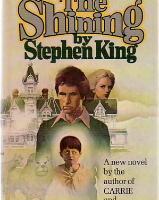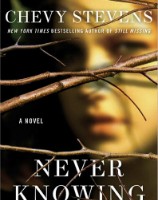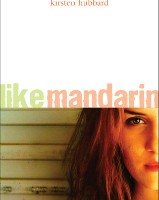Towery on Fiction
- Details
- Published on Wednesday, 01 May 2013 09:05
- Written by Terry Towery
Editor's note: This is the first in an occasional series of articles on fiction writing by Peorian Terry Towery, a budding novelist and veteran of more writing conferences and seminars than anyone should ever have to attend. Towery’s debut novel, the psychological thriller “The Final Victim” is currently being shopped to literary agents in New York City. Wish him luck. He’s going to need it.
Today, however, it seems we’re never really alone. Blame it on technology, which has changed our lives in ways we couldn’t have imagined just a decade ago. Think about it. Facebook tells us our sister is having a latte at Starbucks, our mother is playing Café World, and our boss is looking all over town for us. Want to know what President Obama or Justin Bieber is doing right this second? Check Twitter.
A recent poll shows a whopping 96 percent of Americans now have access to the Internet. More than 95 percent of us have a cell phone and 65 percent of us own a smart phone. All these high-tech devices are not only changing the way we live our lives, but the way we’re reading and writing fiction.
Technology can be an extremely useful tool for authors. But it has to be used correctly, or it can end up creating more problems than solutions. Let’s look at a few ways to use (or not use) technology in a novel.
Isolation. Like King’s snowed-in family in “The Shining,” isolation is an effective way to create suspense. But with today’s technology, it’s hard to get your characters really alone and off the grid. Short of dispatching your hero to the Sahara Desert, the best way to achieve this is to find a clever way to either disable their gadgets or put them in a place where electronics won’t function. Bestselling author Chevy Stevens pulls this off in her new thriller, “Never Knowing,” by having her main character’s fiancé travel periodically to a remote wilderness lodge to conduct tours. And, of course, he can’t be reached when he’s needed most. It works, and more importantly, it’s thoroughly believable since that’s what the fiancé does for a living.
Can you hear me now? One of the best ways to add tension to your novel is creating situations where the characters don’t know where their loved one is, or what they are doing. Young adult author Kirsten Hubbard, in her debut novel, “Like Mandarin,” weaves an affecting tale of two high school girls and their burgeoning friendship. Part of the book’s tension comes when the two girls go days without seeing each other, leaving Grace, the main character, to wonder if there’s a problem with her beloved Mandarin. The novel is set in the present, and Hubbard pulls it off by leaving technology out of the book altogether. If they had cell phones, they would’ve been texting constantly and the novel would have lost much of its emotional firepower.
Out of touch. Conversely, one way of using technology to create tension is to have someone who is usually in touch suddenly go missing. There are few things more ominous than being unable to reach a loved one who is always available by cell phone. Used sparingly, this literary device can be highly effective.
Don’t date your work. We writers often feel the need to cram our manuscript full of the coolest high-tech gadgets available. Really, who wants to appear 3G in a 4G world? But be careful. Technology moves so fast that what’s cool this week can be a dinosaur by next Friday. Imagine the poor writer who, three years ago, started her Great American Novel about a murder mystery revolving around a relationship on MySpace. Oops. Remember, a great song is a great song, no matter how old it is, but a flip phone is just plain silly in this day and age.
Avoid contrivance. No one needs to be told that readers today are savvier than ever. One too many contrived plot devices and they’ll drop your book like it’s on fire. Think twice before conveniently disabling a character’s cell phone just when he needs it most or taking down the Internet right before she can read that all-important email. Be wary of the high-tech deus ex machina. If you must remove technology in order to make your work more suspenseful, do it in a way that’s believable. Your readers will thank you for the extra effort.
What’s in a name? Quite a bit, it turns out. Avoid using too many brands, which can be off-putting to some readers. Instead of saying a character has a BlackBerry, use smart phone. Skype can become video chatting. Use e-reader rather than a specific device. General terms come across as less elitist and can be especially useful if the brand is outdated before your book is published two or three years down the road.
Ever-evolving technology has clearly altered the fiction landscape. Used intelligently, technology can add tension and atmosphere to any manuscript. Used poorly, your work will fall flatter than unleavened bread. Remember, the Internet isn’t just a place for writers to waste time. It’s a wonderful research tool if used wisely. Now if you’ll excuse me, I need to log my location on Foursquare.





















































